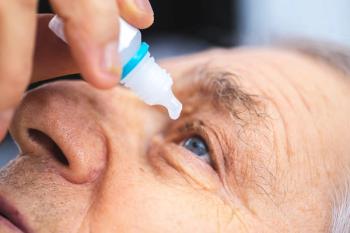
- September digital edition 2022
- Volume 14
- Issue 9
Supplements slow AMD progression, study data confirm
AREDS2 formula doesn’t contain beta carotene, reducing the risk of lung cancer.
New research data from the National Eye Institute (NEI) confirm that dietary supplements can decrease the progression of age-related macular degeneration (AMD). In a report on a National Institutes of Health (NIH)-funded study recently published in JAMA Ophthalmology, investigators examined 10 years’ worth of data from the Age-Related Eye Disease Studies (AREDS and AREDS2).1,2
They discovered that the AREDS2 formula—which substituted antioxidants lutein and zeaxanthin for beta carotene—not only reduces the risk of lung cancer from beta carotene but is also more effective in reducing the risk of AMD progression, compared with the original formula, according to an NIH news release.3
Emily Chew, MD, director of the NEI’s Division of Epidemiology and Clinical Application, as well as lead author of the study report, said that because taking beta carotene increased the risk of lung cancer for current smokers in 2 NIH-supported studies, the goal with AREDS2 was to create an equally effective supplement formula that could be used by both smokers and nonsmokers.
“This 10-year data confirm that not only is the new formula safer, it’s actually better at slowing AMD progression,” Chew stated in the release.
The original AREDS study—launched in 1996—found that a formula of dietary supplements (500 mg of vitamin C, 400 international units of vitamin E, 2 mg of copper, 80 mg of zinc, and 15 mg of beta carotene) could significantly slow the progression of AMD from moderate to late disease, according to the release. Despite this, 2 parallel studies found that the risk of lung cancer in individuals who took beta carotene and smoked was significantly higher than anticipated.
The AREDS2 trial (NCT00345176) was launched in 2006 as a 5-year study comparing the beta carotene formulation with formulations with 10 mg of lutein and 2 mg of zeaxanthin.
Similar to beta carotene, these antioxidants have activity in the retina. Only patients who had either never smoked or had quit smoking were given the beta carotene formulation.
At the end of the study, it was determined that the antioxidants did not increase the risk for lung cancer. Further, investigators concluded that the beta carotene formulation could reduce the risk of AMD progression by approximately 26%.
Upon the study’s completion, participants were offered the final formation from the study that included lutein and zeaxanthin (instead of beta carotene).
The new report includes findings from investigators’ follow-up with 3883 participants of the original 4203 participants from the AREDS2 study in 2011, 5 years after its conclusion. They noted whether participants’ AMD has progressed to late disease as well as if they had a lung cancer diagnosis, according to the release. Despite the fact that all patients had switched to the antioxidant-containing formula following the end of the AREDS study, results from the follow-up study continued to reveal that beta carotene increased the risk of lung cancer for individuals who had never smoked by almost double. For those patients who received the lutein/zeaxanthin formulation, there was no increased risk for lung cancer.
Further, investigators reported that after 10 years, the participant group originally assigned to receive lutein/zeaxanthin had an additional 20% reduced risk of progression to late AMD compared with those originally assigned to receive beta carotene.
Chew stated: “These results confirmed that switching our formula from beta carotene to lutein and zeaxanthin was the right choice.”
REFERENCES
1. Age-Related Eye Disease Study Research Group. The Age-Related Eye Disease Study (AREDS): design implications. AREDS report no. 1. Control Clin Trials. 1999;20(6):573-600. doi:10.1016/s0197-2456(99)00031-8
2. AREDS2 Research Group, Chew EY, Clemons T, et al. Ophthalmology. 2012;119(11):2282-2289. doi:10.1016/j.ophtha.2012.05.027
3. NIH study confirms benefit of supplements for slowing age-related macular degeneration. National Eye Institute. June 2, 2022. August 1, 2022. https://www.nei.nih.gov/about/news-and-events/news/nih-study-confirms-benefit-supplements-slowing-age-related-macular-degeneration
Articles in this issue
about 3 years ago
Help your practice rank higher in local Google searchesabout 3 years ago
A look at the latest lenses on the market and their modalitiesabout 3 years ago
Higher-order aberration correction with scleral lensesabout 3 years ago
Importance of communication between providersabout 3 years ago
What to know about new topical presbyopia-correcting dropsabout 3 years ago
Welcome to the EVO-lutionover 3 years ago
Dry eyes: A price to pay for clear skin?over 3 years ago
Study: Skipping breakfast linked to decreased risk of AMDNewsletter
Want more insights like this? Subscribe to Optometry Times and get clinical pearls and practice tips delivered straight to your inbox.








































